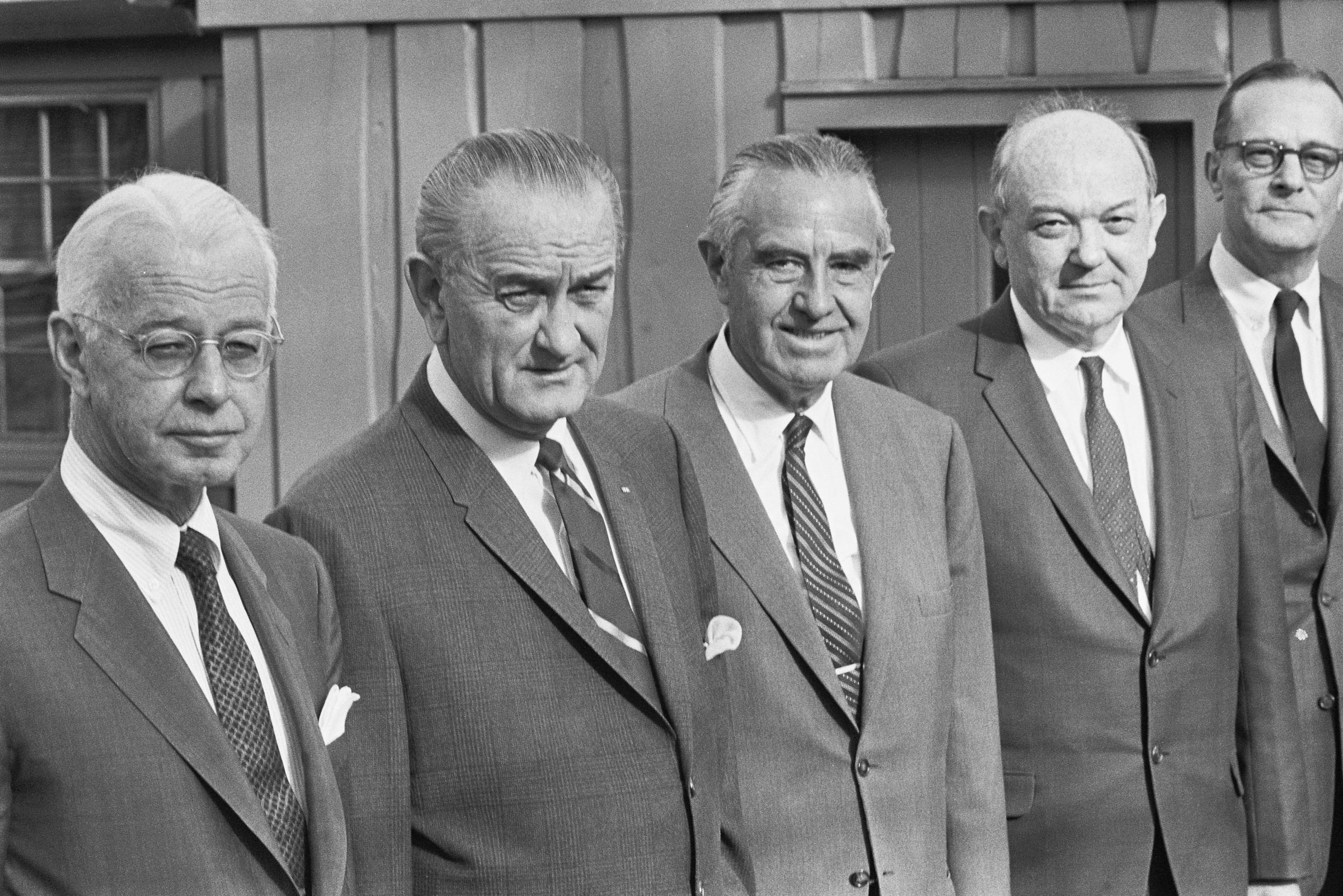When Sen. John McCain is remembered at memorial ceremonies in Arizona and Washington, D.C., this week, and when he lies in state at the U.S. Capitol on Friday, it will be a time for many of those who knew him to pay their respects. But President Trump will not attend the funeral — at the request of the Arizona Republican himself.
Though the specific request marks a departure from the norms of memorializing notable political figures, the question of Trump’s attendance is part of a long history of meaning when it comes to presidential funeral attendance. It’s relatively common for other members of an administration to attend funerals in the president’s stead, but it’s also common for those decisions to be assigned great meaning.
McCain, who died at the age of 81 a little more than a year after being diagnosed with an aggressive brain cancer, had a longtime feud with Trump, which extended to pointed remarks in his farewell letter. McCain’s family had asked that Trump not attend funeral services prior to the Arizona senator’s death, according to initial reports from the New York Times later confirmed by the Associated Press. In his requests for the funeral, McCain asked that former presidents Barack Obama and George W. Bush deliver eulogies.
Trump, who earned rebukes on Monday after flying flags at the White House at full staff, a decision he then reversed, is not the first president to be absent at the funeral of a person with great impact on American history.
Former president Lyndon Johnson did not attend the funeral for Martin Luther King Jr., citing security concerns, according to Rebecca Burns’ book Burial for a King: Martin Luther King Jr.’s Funeral and the Week that Transformed Atlanta and Rocked the Nation. Vice-President Hubert Humphrey was sent instead. Johnson spent the day of King’s funeral meeting with top advisors at Camp David to talk about the Vietnam War, while the civil rights leader was buried in Atlanta — but it was a decision that apparently left the president agonized, as he weighed his personal safety against the message he wanted to send and the meaning of his presence.

More recently, President Obama drew criticism when he declined to attend the funeral of Supreme Court Justice Antonin Scalia. While the decision was not totally out of the ordinary — previous presidents have skipped funerals for other Supreme Court justices — rumors flew about why Obama would not attend Scalia’s funeral. The situation showed that it’s easy to read into the decision by any president to attend or not attend a notable funeral, perhaps especially when it comes to those who have been political opponents. Former White House press secretary Josh Earnest defended Obama at the time, saying that he would pay his respects to Scalia while his body laid in repose. Vice President Joe Biden represented the administration at the funeral. Obama was also criticized by some for deciding not to attend Nancy Reagan’s funeral, though that choice was largely in keeping with precedent.
Still, it’s relatively rare for a president to not attend the memorial or funeral services of historical figures when those deaths are officially marked by the government. Presidents serving at the time of death for the last five people laid at the rotunda of the U.S. Capitol, where McCain will soon become the 13th U.S. Senator to lie in state, attended services to honor them. Trump attended the memorial service for Rev. Billy Graham, who laid in honor at the Capitol, from Feb. 28 to March 1.
When presidents do decline to attend such funerals, it is typically to avoid disrupting services because of added security or because they had another engagement — not because the subject in question asked them not to come at all.
More Must-Reads from TIME
- Donald Trump Is TIME's 2024 Person of the Year
- Why We Chose Trump as Person of the Year
- Is Intermittent Fasting Good or Bad for You?
- The 100 Must-Read Books of 2024
- The 20 Best Christmas TV Episodes
- Column: If Optimism Feels Ridiculous Now, Try Hope
- The Future of Climate Action Is Trade Policy
- Merle Bombardieri Is Helping People Make the Baby Decision
Write to Mahita Gajanan at mahita.gajanan@time.com